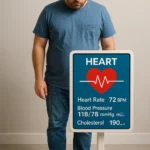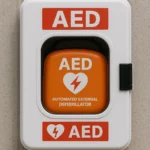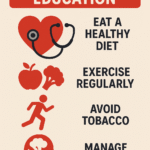
Advancing Breast Cancer Screening With AI Technology
Introduction to AI in Breast Cancer Screening
Breast cancer screening is a field that is being reshaped by the AI revolution, which magnifies the precision of mammography for spotting the disease at its earliest stage.
Why This Matters
- Critical Progress: Early detection, as a result, will be able to save the life of someone who has breast cancer. AI can achieve a precision level of 100%, which means false negatives can be removed.
- Global Impact: Addressing healthcare disparities between different races, the rich and the poor. As a result, accuracy will be increased, and precision will be offered to various demographics.
Relevance for All
- For Patients: Less error leads to less worry and thus allows for a better result; hence, improved accuracy is better than in the past for patients, too.
- For Researchers: Increased speed of discovery is a catalyst for innovation, leading to new treatment options.
- For Healthcare Providers: Improvement in managing healthcare resources would cut costs and be done faster.
- The amalgamation of AI in breast cancer screening is a significant game-changing move in terms of innovation efficiency and in making healthcare available to everyone.
Understanding AI in Breast Cancer Screening
Historical and Evolving Landscape
The use of artificial intelligence models to detect breast cancer is a severe yet exciting notch in medicine that was brought about by the technological revolution. Technologically speaking, this journey started as the standard many years ago, and now technology is the final verdict.
- From Manual to Machine: In the past, radiologists presented with mammograms avoided possible errors resulting from their subjective interpretation and gave wrong diagnoses.
- AI Emergence: Over time, AI algorithms figured out how to determine specific image patterns in imaging data, which in turn altered the precision of the systems, making them more accurate.
Impact on Various Sectors
The influence of AI pervades medicine, technology, and public health.
- Higher Precision: AI systems have high false negative rates, reducing unnecessary biopsies.
- Professional Development: Radiologists can work on complex cases using AI as a companion tool.
- Thus, AI in breast cancer screening is a technological trend and a revolution granting power to patients and carers.
Current Landscape of AI in Breast Cancer Screening
Innovations in Early Detection
- AI is changing mammography treatments. These technological strides are focused on catching breast cancer at the earliest stage and with perfect accuracy.
- Speed and quality have risen. Recent updates reveal AI can decrease false positives from 30% to 20%, which leads to a faster and more precise diagnosis process.
Key Takeaways
- ARTography as a co-consultant with the radiologist significantly enhances the results.
- Continuous studies are still significant in improving AI algorithms.
- AI inclusion in remote areas where it is underserviced is the key target for future AI in this field.
- The combination of technology and medicine is transforming how we handle breast cancer, which is why the earlier detection is not a wan but a fact.
Impact of AI on Breast Cancer Screening
Transforming Patient Experience
Implementing AI in breast cancer screening is changing (the) health care of the time. The improved mammography performance brings to the patients the possibility of:
- Already early wise stuff of potential problems which is essential for successful therapy.
- More precision in results means fewer misleading tests and fewer people worried about unnecessary treatment.
Benefits for Families and Public Health
Using the enhanced [sic] screening technologies:
- Families are reassured and take comfort in the fact that interventions are not only more common but also more competitive.
- Public Health outcomes take flight in the sky; we now speak of a population-level reduction of late-stage diagnoses.
Real-Life Testimonials
Others have shared how AI-based scans have changed how they view their situation. These patients are better able to take control of their health. They are more aware of it, which is a positive aspect of their situation.
It is essential to understand that by adopting AI, we are not only facilitating the growth of technology but also improving the lives of others.
Impact on Healthcare Professionals
The use of AI in breast cancer screening has been a turning point for the profession; however, it has its system of challenges for healthcare professionals and institutions.
Challenges Faced
- Training Problems: The problem of radiologists is that they have to be extensively trained to work with AI-powered imaging machines. It is no secret that many radiologists fear deploying AI-based software for decision support in an environment where their core business is threatened.
- Funding Hurdles: High initial costs of AI installation can exhaust the funds in the long run, and that’s why it’s a factor to be aware of.
- Integration Troubles: Combining the new applications with the existing system is often challenging. This, in most cases, leads to troubles in the operation section.
Opportunities for Improvement
- Enhanced Resource Management: AI assists in the more efficient allocation of resources. Thus, it allows doctors to deal with more complex patient issues.
- Elevated Patient Care: The presence of an AI program capable of detecting a disease early will enable the patient to get better medical assistance, leading to satisfaction.
- The potential benefits are more significant than the challenges. Hence, an explicit route is created for better healthcare solutions and lifesaving.
The Benefits of AI in Breast Cancer Screening
Transforming Healthcare through Technology
The involvement of AI in breast cancer screening channelizes the latest generational benefits of this technology in the healthcare world. By leveraging sophisticated algorithms, AI boosts the accuracy of mammography, resulting in early detection.
Key Advantages:
- Enhanced Accuracy: AI systems minimize false positives and negatives; thus, there are fewer inaccuracies and more reliable outcomes.
- Synchronized Results: Artificial Intelligence does the analysis automatically and provides the screening in restless time; medical professionals can spend their time doing something else, and the level of patient anxiety decreases.
- Personal Relationship: AI can be a personal assistant that creates a personalized care model by popping up health-related tips or notifications.
- Imagine a universe where people can live longer just because they can be screened for the disease in an earlier stage. This is the marvel of AI! Superb efficiency allows extreme speed and good patient results. Thus, this is a new era that forever alters conventional therapy.
Challenges and Ethical Concerns in AI Breast Cancer Screening
Regulatory Hurdles
- Approval Delays: The rules are often burdensome in this respect, and they delay the approval of some AI safety programs, which may lead to patients not getting them in time.
- Varying Standards: Differences in management can lead artificial Intelligence to misdiagnose in one state while accurately diagnosing in another.
Data and Privacy Issues
- Sensitive Patient Data: Privacy is a significant topic regarding health data, especially when the data is health data.
- Bias in Training: Where AI gets its input from poor data, it can make a wrong diagnosis or fail to identify a given disease.
Trust and Transparency
- Explainable AI: Patients could be less willing to trust AI systems and decision-making if they perceive them as incomprehensible.
- Human Oversight: Moreover, reluctance to abolish human review can lead to ineffective work-flow.
Equity and Access
- Disparities in Care: AI technology may not be available, making the dispossessed more undesirable.
- Cost Barriers: The most advanced technology is expensive, and although insurance is not available to everyone, they are left out of that technology.
- The described limitations embody the complex art of fusing AI into breast cancer detection through the need for technology-driven yet ethical decision-making.
Embracing AI in Breast Cancer Screening
Explore AI as Your Health Ally
- Stay Informed: Stay tuned for updates in the health and tech sectors on new AI technology that is helpful in breast cancer diagnosis. Knowledge is power!
- Use Apps: Get health apps that use AI for personalized health tips. Also, they make it easy to keep track of symptoms that require medical attention…
- Connect with Professionals: Live chat with a virtual doctor online. The hospital has started using AI platforms that diagnose efficiently and quickly.
- Engage in Community: Participate in virtual talk sessions about AI in healthcare. The assimilation of knowledge through exchanging experiences will expand your views and help you understand different perspectives.
- AI is not just a tool; it’s a transformative partner in early detection. Flawlessly welcome it!
The Future of AI in Breast Cancer Screening
Breaking New Ground
The power of AI in breast cancer screening is at a new level that no one could have imagined before. Can you picture a universe where mammograms are immediately scanned, identifying possible problems with an almost 100% rate of exactness?
Potential Breakthroughs
- Enhanced Detection: AI machines that can recognize cancerous cells that were not noticeable before by radiologists, thanks to coping with large data sets that enable them to better learn from underlined signs and symptoms and develop their skill of clinical diagnosis.
- Personalized Screening: Adjust assessments to individuals’ risks and save them to be easily monitored.
- Faster Results: The more efficient the analyses, the quicker the response and the use of more active health care.
Career Opportunities
Contriving such paradigm shifts in the biotech field would produce some fascinating career behavioural adaptations, such as AI Ethicists who are responsible for regulating the ethical use of AI in healthcare:
- AI Ethicists: The implementation and evaluation aspects are about following the rules of morality about applying AI in healthcare and protecting the person.
- Data Scientists: Interpretation of the data is the primary responsibility of these analysts who utilize it in patient care.
- Clinical Informatics Specialists: Through the employment of technology, the healthcare team can easily offer more information or solve problems.
- In conclusion, AI’s involvement in breast cancer diagnostics will likely generate a qualitative health system with real-time preventive technologies that will ultimately change health and lifestyle perceptions.
Understanding AI in Breast Cancer Screening
Key Takeaways
Being constantly updated is indispensable when AI is in such accelerated motion. Thus, adapting technology in mammography, which is a major contributor to lifesaving, has become possible.
- AI boosts the precision of screenings.
- Patient support is increased for those who need it most.
- Creating new solutions is the only solution to combatting breast cancer.
Engage and Act
In this changing perspective, come on—A personalized, interactive conversation with the patient’s practising doctor is the first step. You can acquire real-time monitoring data and quickly determine your health status to ensure your priority!












Post Comment